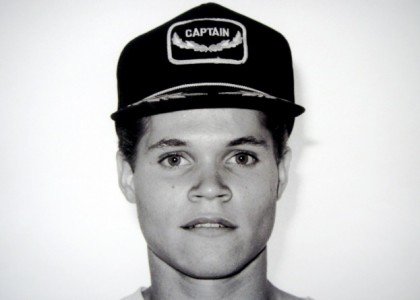Tom Burr and Walter Pfeiffer
dal 12/11/2007 al 18/1/2008
Segnalato da
12/11/2007
Tom Burr and Walter Pfeiffer
Swiss Institute - Old location, New York
Although from different cultural backgrounds and mediums, both artists depart from autobiographical impulses to merge concerns of space and subjectivity, subculture and sexual identity. Burr's main installation at the Swiss Institute is a newly produced version of "The Storage Project", a series of sculptures initially created in 1993. The photographs of Walter Pfeiffer are built as complex structures by mixing family snap shots and party scenes, still lifes and staged studio portraits.

A joint exhibition
Curated by Florence Derieux and Gianni Jetzer
The Swiss Institute presents the first joint exhibition of Tom Burr and Walter Pfeiffer. Although from different cultural backgrounds and mediums, Pfeiffer and Burr both depart from autobiographical impulses to merge concerns of space and subjectivity, subculture and sexual identity. As figureheads, both artists have influenced younger generations.
Tom Burr’s main installation at the Swiss Institute is a newly produced version of “The Storage Project,” a series of sculptures initially created in 1993 in an uninhabited unit of a Le Corbusier apartment building in France. The installation refers to the neighboring apartments where furniture and bikes spilled onto balconies. Evoking doors, nightstand tables, and partial walls, “The Storage Project” explores the closet and its surrounding space. Burr adapts the original version for the Swiss Institute, adding piles of stuff—clothing and books—through which the viewer must navigate. Piled ephemera overflow from these weighty structures; collectively, the elements provide the backdrop for a conceptual approach to the closet where, according to Burr, “lives are lived, exposed, and hidden.”
On display between and beyond half walls and hallways, the photographs of Walter Pfeiffer come into play. His spreads are built as complex structures by mixing family snap shots and party scenes, still lifes and staged studio portraits. Images such as leather-jacketed boys are shown in conjunction with a neatly wrapped package (laundry he used to send home) or with a striped towel slung over its rack. Pfeiffer adheres to both strict formal compositions as well as to trigger-happy encounters. The two approaches, when paired and accumulated, become strangely similar. Bob Nickas writes of Walter Pfeiffer as “possessing a camera designed to project-and then to trace—a virtual image of desire onto the plane surface of everyday life,” (Artforum, Summer 2003).
Opening reception: Tuesday November 13, 6-8 PM
Swiss Institute
495 Broadway - New York



